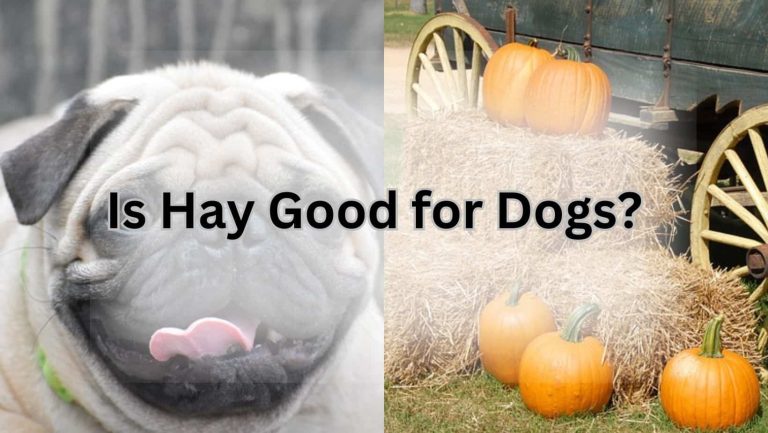Is Clover Bad for Dogs? Let’s Dig Into It!
Is Clover Bad for Dogs?
Is clover bad for dogs? The short answer is no, clover is not toxic to dogs. However, that doesn’t mean you should let your furry friend munch on it like it’s a gourmet salad! Read on to discover the nuances of clover and how it affects our canine companions.
Understanding Clover Types
Did you know there are several types of clover? From the common white clover to the vibrant red clover, each variety has its own charm. But, while clover itself is generally safe, some types may cause minor digestive upset if consumed in large quantities. So, is your pup a clover connoisseur or just a casual nibbler? Knowing the clover types can help you gauge how much is too much!
Common Dog Behaviors Around Clover
Picture this: your dog frolicking in a field of clover, tail wagging like a flag in the wind. It’s a delightful scene, but have you ever wondered why dogs are so drawn to clover? Dogs are natural explorers, and the scent and texture of clover can be irresistible. But what happens when they decide to snack on it? While most dogs will be just fine, some may experience mild gastrointestinal issues. So, should you panic? Not really! Just keep an eye on their behavior.
Nutritional Components of Clover
Clover isn’t just a pretty face in your yard; it’s packed with nutrients! Rich in protein and vitamins, clover can actually be beneficial in small amounts. But remember, moderation is key! Too much of a good thing can lead to tummy troubles. So, if your dog decides to munch on a clover patch, it’s best to treat it as an occasional snack rather than a main course. After all, we wouldn’t want our pups thinking they can become gourmet clover critics, would we?
“`html
Potential Risks of Clover for Dogs
When it comes to our furry friends, we often wonder, “Is clover bad for dogs?” The answer isn’t as straightforward as one might hope. While clover may look innocent, it can pose certain risks. So, what should we know about this seemingly harmless plant?
Toxicity Levels of Different Clover Species
Not all clovers are created equal! Some species, like white clover, are generally safe, while others can cause mild toxicity. But how do we differentiate? Just because your pup thinks clover is a tasty snack doesn’t mean it’s always good for them. If you’ve ever seen your dog munching on clover like it’s the best salad bar in town, you might want to take a closer look. Keep an eye out for any unusual behaviors after their clover buffet!
Allergic Reactions in Dogs
Have you ever noticed your dog scratching like they’ve just rolled in a field of itching powder? Clover allergies can be a sneaky culprit! Just like humans, dogs can develop allergies to various plants, including clover. If your pooch is sneezing or has red, itchy skin after frolicking in the yard, it might be time for a clover intervention. Who knew a plant could be such a drama queen?
Effects of Clover Consumption
So, what happens if your dog indulges in a clover feast? While most dogs will be fine after munching a few leaves, excessive consumption can lead to gastrointestinal upset. Think of it like that time you accidentally ate a whole pizza and regretted it later. If your dog starts to exhibit symptoms like vomiting or diarrhea, it’s best to consult your vet. Remember, moderation is key—even with clover!
In summary, while clover isn’t the villain of the doggy world, it’s essential to be vigilant. Keep your garden clover-friendly and your furry friend happy!
“`
Symptoms of Clover Ingestion
Have you ever caught your furry friend munching on a patch of clover? You might want to keep an eye on them! While clover is generally not toxic, it can cause some gastrointestinal distress. So, what should you look out for?
Gastrointestinal Distress Signs
First off, if your dog starts acting like they’ve just eaten a three-course meal at a doggy buffet, it might be time to worry. Symptoms like vomiting, diarrhea, or excessive drooling can indicate that clover isn’t sitting well in their tummy. Think of it as their way of saying, “Hey, this clover is no gourmet treat!” If your pup seems uncomfortable or is running to the yard like it’s an Olympic sprint, it’s best to consult your vet.
Behavioral Changes to Watch For
Next up, let’s talk about behavior. If your usually playful pooch turns into a couch potato or starts hiding under the bed like it’s the end of the world, something might be off. Changes in energy levels or mood can signal that they’re not feeling their best. It’s like when you eat too much pizza and just want to curl up on the sofa—only your dog can’t tell you why they’re feeling that way!
Long-term Health Effects
Now, let’s consider the long game. While a little nibble might not cause immediate harm, repeated exposure could lead to allergies or sensitivities. Imagine if your dog suddenly developed a clover allergy—talk about a garden party gone wrong! Keeping an eye on their reactions over time can help you spot any potential issues before they become a bigger problem.
So, the next time you see your dog eyeing that clover patch, remember to keep a watchful eye. After all, a happy dog is a healthy dog! And who wouldn’t want to keep their best friend feeling great?
Safe Interaction with Clover
As a dog owner, I often find myself pondering the safety of clover in my yard. Can my furry friend frolic in the clover patch without a care in the world? The answer lies in how we manage our dog’s interaction with this vibrant greenery.
Monitoring Your Dog in Clover Areas
First off, keeping an eye on your pup while they explore clover patches is essential. Ever seen a dog sniff every blade of grass like it’s a gourmet meal? It’s adorable but can lead to unexpected surprises. Monitoring their behavior helps me catch any signs of clover munching before it turns into a clover buffet. If your dog starts acting a bit off after a clover snack, it’s time to consult a vet. Remember, just because they look cute doesn’t mean they’re immune to clover’s potential mischief!
Teaching Commands for Safe Play
Imagine this: you’re at the park, and your dog spots a clover patch. Instead of diving in headfirst, they respond to your “leave it” command. Sounds like a dream, right? Teaching commands like “leave it” or “come” can be a game-changer. It not only keeps them safe from potential clover-related issues but also gives you peace of mind. Plus, it’s a great excuse to show off your dog’s impressive skills to other pet parents!
Creating a Dog-Friendly Yard
Transforming your yard into a dog-friendly oasis is easier than you think. Consider replacing clover with pet-safe plants. Think about it: a yard full of dog-friendly flora means no worries about clover toxicity. Plus, your dog will appreciate the variety! A little creativity can turn your outdoor space into a canine paradise, complete with chew-friendly plants and a designated play area. Who wouldn’t want to be the coolest dog parent on the block?
So, while clover isn’t inherently harmful, a watchful eye, some training, and a little landscaping magic can ensure your dog enjoys the great outdoors safely. Happy exploring!
5. Alternative Ground Covers for Dogs
Safe Plants for Dog Owners
As a dog owner, I often find myself pondering, “What can I plant that won’t send my furry friend into a sneezing fit or worse?” Thankfully, there are plenty of dog-friendly alternatives to clover that can keep your yard looking lush while ensuring your pup’s safety. Consider options like creeping thyme, which not only smells delightful but also withstands the wear and tear of playful paws. Or how about some soft fescue grass? It’s like a plush carpet for your dog to frolic on without the worry of clover toxicity lurking in the grass. Who knew landscaping could be so fun and safe?
Benefits of Non-Toxic Ground Covers
Why settle for clover when you can have a garden that’s both beautiful and safe? Non-toxic ground covers like sedum or moss not only add a splash of green but also provide excellent cushioning for your dog’s adventures. Plus, they require less maintenance—less time pulling weeds means more time playing fetch. And let’s be honest, a garden that’s dog-approved is a win-win for everyone. Imagine your pup rolling around in a patch of vibrant, non-toxic plants instead of worrying about clover allergies. Sounds like a dream, right?
How to Transition from Clover to Other Plants
So, you’ve decided to bid farewell to clover. How do you make the switch without turning your yard into a barren wasteland? Start by gradually removing clover patches, ensuring your dog doesn’t feel the loss too keenly. Introduce new plants slowly, maybe even planting a few seeds together as a bonding activity. Trust me, your dog will appreciate the fresh greens, and you’ll enjoy the peace of mind knowing your garden is a safe haven. Just remember, a little humor goes a long way when your dog decides to dig up your new plants in search of buried treasures!
“`html
Dog Breeds and Clover Sensitivity
Common Breeds More Affected by Clover
Have you ever wondered if your furry friend is more susceptible to clover than others? Some dog breeds, like the adorable Beagle and the ever-energetic Labrador Retriever, seem to have a knack for munching on everything in sight, including clover. Unfortunately, their curious nature can lead to discomfort if they happen to be sensitive to it. While clover isn’t classified as highly toxic, certain breeds may exhibit more pronounced reactions. So, is your pup one of those clover connoisseurs? Keep an eye on them!
Age Factors in Clover Sensitivity
Did you know that age can play a significant role in how dogs react to clover? Puppies, with their boundless energy and penchant for exploration, might be more prone to nibbling on clover without a second thought. But here’s the kicker: their developing digestive systems can sometimes struggle with unfamiliar plants. On the flip side, senior dogs might have a more sensitive stomach, making them more vulnerable to any clover-related woes. So, whether your dog is a sprightly young pup or a wise old soul, it’s wise to monitor their clover consumption closely.
Size and Clover Interaction Risks
Is it true that size matters when it comes to clover? Absolutely! Smaller breeds, like Chihuahuas, may seem like they’re just having a snack, but even a tiny amount of clover can lead to tummy troubles. In contrast, larger breeds might handle a bit more clover without immediate issues, but that doesn’t mean they should gorge themselves. It’s always better to err on the side of caution. So, whether your dog is a tiny teacup or a majestic Great Dane, keeping clover out of their reach is a smart move!
“`
Preventive Measures for Dog Owners
As a dog owner, I often find myself pondering, “Is that patch of clover in my yard a potential troublemaker for my furry friend?” To keep my pup safe and sound, I’ve picked up a few handy strategies that I’d love to share. After all, a happy dog makes for a happy owner!
Regular Yard Maintenance Tips
Ever thought your yard might be a hidden jungle? Regular maintenance is key! Mowing your lawn not only keeps it looking sharp but also helps you spot any sneaky clover patches that could pose a risk. Plus, who doesn’t love a good excuse to show off your gardening skills? Just remember, a well-kept yard is like a dog’s personal playground—minus the clover hazards!
Identifying and Removing Clover
Identifying clover isn’t rocket science, but it can feel like a treasure hunt! Look for those cute little three-leaf clusters. If you find them, it’s time to channel your inner gardener and remove them. Grab some gloves and a spade, and make it a fun family project. Who knew yard work could double as a bonding experience? Just watch out for the mud—your dog will thank you for keeping the mess outside!
Educating Family Members About Clover
Got kids or roommates? Time to gather the troops for a clover education session! Explain the potential clover toxicity in dogs and why it’s essential to keep an eye out. You could even turn it into a fun game—“Spot the Clover!” Just imagine the laughter as everyone becomes a clover-hunting expert. Plus, it’s a great way to ensure everyone is on the same page when it comes to your dog’s safety.
With these preventive measures in place, you’ll be well-equipped to keep clover at bay and ensure your dog enjoys a safe, clover-free environment. After all, a little vigilance goes a long way in keeping our four-legged friends happy and healthy! Who knew yard maintenance could be such a tail-wagging adventure?
“`html
8. Conclusion
8.1 Summary of Clover Risks
So, is clover bad for dogs? The short answer is: it depends! While clover isn’t the villain of the garden, it can pose risks if your furry friend decides to munch on it like it’s the world’s tastiest salad. Clover toxicity in dogs is generally low, but some pups may experience mild symptoms like vomiting or diarrhea. Keep an eye on your four-legged pals, especially if they’re prone to snacking on your lawn’s greenery. Who knew a simple clover could stir up such drama in our doggy lives?
8.2 Final Thoughts on Dog Safety
As a devoted dog parent, your pup’s safety is your priority. If you’re wondering, “Is clover safe for dogs?” the answer leans toward yes, with a sprinkle of caution. Just like we wouldn’t let our kids eat everything in sight, it’s wise to monitor your dog’s outdoor dining habits. After all, a well-informed pet owner is like a superhero in the canine world! And remember, if your dog shows any unusual symptoms after clover consumption, a quick call to the vet can save the day.
8.3 Importance of Awareness for Dog Owners
Awareness is key, my fellow dog enthusiasts! Understanding clover allergies in dogs or the effects of clover on dog health can help you create a safe haven for your pup. You wouldn’t want to be the owner of a dog with a clover allergy, would you? That’s like having a kid who’s allergic to cake—just cruel! So, let’s stay vigilant, keep those clover patches in check, and ensure our furry friends enjoy a safe, happy romp in the yard. After all, who doesn’t want a carefree dog chasing butterflies instead of feeling under the weather? Now, go forth and enjoy your time with your pooch, clover-free or not!
“““html
FAQs
Is all clover toxic to dogs?
Not all clover is toxic to dogs, but some varieties can cause mild gastrointestinal upset. While most dogs can munch on clover without a care, it’s wise to keep an eye on what they snack on—after all, we wouldn’t want them turning into little green monsters!
What should I do if my dog eats clover?
If your dog indulges in a clover buffet, don’t panic! Monitor them for symptoms like vomiting or diarrhea. If they seem off or you’re worried, a quick call to your vet can ease your mind. Remember, a little clover never hurt anyone—unless it’s the whole garden!
Can clover cause long-term health issues in dogs?
Generally, clover isn’t known to cause long-term health issues in dogs. Most pups will bounce back just fine after a little nibble. However, if they have allergies or underlying health conditions, it’s best to consult your vet for peace of mind.
How can I keep my dog away from clover?
Keeping your dog away from clover can be as simple as training and creating boundaries. Consider using barriers in your garden or redirecting their attention with toys and treats. A little distraction goes a long way—just like a good game of fetch!
Are there any benefits of clover for dogs?
Surprisingly, clover isn’t all bad! Some dogs enjoy clover as a natural treat. It can also be beneficial for the soil and environment. Just make sure your pup doesn’t overindulge—too much of a good thing can turn them into a furry lawn mower!
What are the signs of clover poisoning in dogs?
Signs of clover poisoning in dogs can include vomiting, diarrhea, and lethargy. If your furry friend starts acting like they’ve just seen a ghost, it’s time to check in with your vet. Quick action can save the day and keep tails wagging!
“`



